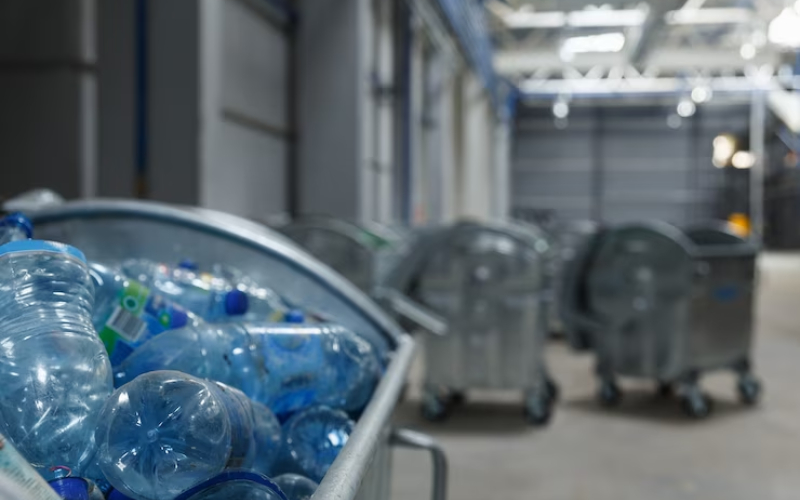Effective Practices for Industrial Waste Recycling

Industrial waste recycling is the practice of reusing and repurposing industrial waste materials. It is a key element of sustainable development and is used to reduce the environmental impacts of industrial processes. Industrial waste recycling involves recovering by-products, such as metals, chemicals, plastics, rubber, and paper, from manufacturing and industrial processes and reusing them in the same or different form. It is also used to reduce the production of hazardous materials and to minimize the amount of energy and resources needed for industrial processes. In this article, we will discuss effective practices for industrial waste recycling, the different types of waste that can be recycled, and the benefits and challenges associated with it.
How To Implement Effective Industrial Waste Recycling Practices?
Implementing effective industrial waste recycling practices begins with identifying the types of waste that can be recycled. This can be done through the use of waste audits. Which involves analyzing the waste generated by an industrial process and determining which materials can be recycled. Once the types of materials that can be recycled are identified, it is important to develop a plan for collecting and transporting the waste to the appropriate facilities. Proper waste management practices should also be implemented, such as sorting, storing, and disposing of waste in a safe and responsible manner.

Different Types Of Industrial Waste Recycling
Industrial waste recycling can involve a variety of materials, including metals, chemicals, plastics, rubber, and paper. Metals, such as aluminum, copper, and steel, can be recycled and reused in various forms, such as scrap metal and new products. Chemicals, such as solvents and oils, can be recycled and reused in industrial processes. Plastics, rubber, and paper can also be recycled and reused in a variety of ways.
Benefits Of Industrial Waste Recycling
Industrial waste recycling can have numerous benefits, including reducing the amount of waste sent to landfills, reducing greenhouse gas emissions, and reducing the amount of energy and resources needed for production processes. Additionally, recycling can reduce the costs associated with waste disposal and help to create jobs in the recycling industry.
Challenges Faced In Industrial Waste Recycling
One of the major challenges of industrial waste recycling is the cost associated with collecting, transporting, and disposing of the waste. Additionally, there can be issues with contamination of the waste materials, making them less useful or even unusable. Improper disposal of hazardous materials can also pose a risk to human health and the environment.
Strategies For Improving Industrial Waste Recycling
There are several strategies that can be implemented to improve industrial waste recycling. These include implementing waste minimization strategies, such as reducing the number of materials used in production processes and encouraging the reuse and recycling of materials. Additionally, it is important to educate employees on the importance of waste and to promote the use of recycled materials.
Other Considerations For Industrial Waste Recycling
- Ensure Compliance with Regulations: It is important to ensure compliance with all relevant regulations when it comes to industrial waste recycling. This means understanding and following local, state, and federal laws.
- Establish Waste Reduction Strategies: Establishing waste reduction strategies can help to reduce the amount of waste generated. As well as reduce the costs associated with industrial waste disposal.
- Consider Reuse and Recycling: Many industrial waste materials can be reused or recycled. Which can help to reduce costs associated with waste disposal and help to conserve resources.
- Utilize Sustainable Materials: Utilizing sustainable materials can help to reduce the amount of waste generated. These materials may include recycled materials, renewable resources, and biodegradable materials.
- Invest in Waste Management Equipment: Investing in the right waste management equipment can help to reduce the amount of industrial waste generated. As well as help reduce costs associated with waste disposal.
- Implement Training Programs: Implementing training programs that focus on industrial waste management can help to ensure. That all employees understand the importance of properly disposing of industrial waste.
Regulatory Requirements For Industrial Waste Recycling
Industrial waste recycling is subject to a variety of local, state, and federal regulations. These regulations typically require that the waste be disposed of in a safe and responsible manner. And they may also include requirements for tracking and reporting the waste. Additionally, some regulations may require the use of specific waste handling and disposal methods.
Conclusion
Industrial waste recycling is an important component of sustainable development and can help to reduce the environmental impacts of industrial processes. It involves recovering and reusing materials, such as metals, chemicals, plastics, rubber, and paper, from industrial processes. Effective industrial waste practices involve identifying the types of waste. That can be recycled, developing a plan for collecting and transporting the waste. Implementing proper waste management practices, and adhering to regulatory requirements. Additionally, it is important to consider the potential health and environmental impacts of industrial waste recycling.

Lyle Vasquez is a technology blogger based in Connecticut. He has been passionate about technology since early childhood when he used to take apart and rebuild computers in his parent’s garage. Lyle’s tech-related blog posts are written to help others learn how to use the latest technology tools and devices. He loves to find new ways to integrate technology into everyday life. Lyle is a great resource for tech enthusiasts looking to stay up to date on the latest technologies.





